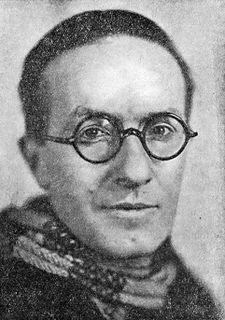A Quote by Ali ibn Abi Talib
The worst of our faults is our interest in other people's faults.
Related Quotes
Before making peace, war is necessary, and that war must be made with our self. Our worst enemy is our self: our faults, our weaknesses, our limitations. And our mind is such a traitor! What does it? It covers our faults even from our own eyes, and points out to us the reason for all our difficulties: others! So it constantly deludes us, keeping us unaware of the real enemy, and pushes us towards those others to fight them, showing them to us as our enemies.
One of the greatest and also the commonest of faults is for men to believe that, because they never hear their shortcomings spoken of, or read about them in cold print, others can have no knowledge of them. GEORG CHRISTOPH LICHTENBERG, The Reflections of Lichtenberg We are often more agreeable through our faults than our good qualities.
My biggest faults is that the faults I was born with grow bigger each year. It's like I was raising chickens inside me. The chickens lay eggs and the eggs hatch into other chickens, which then lay eggs. Is this any way to live a life? What with all these faults I've got going, I have to wonder. Sure, I get by. But in the end, that's not the question, is it?




































